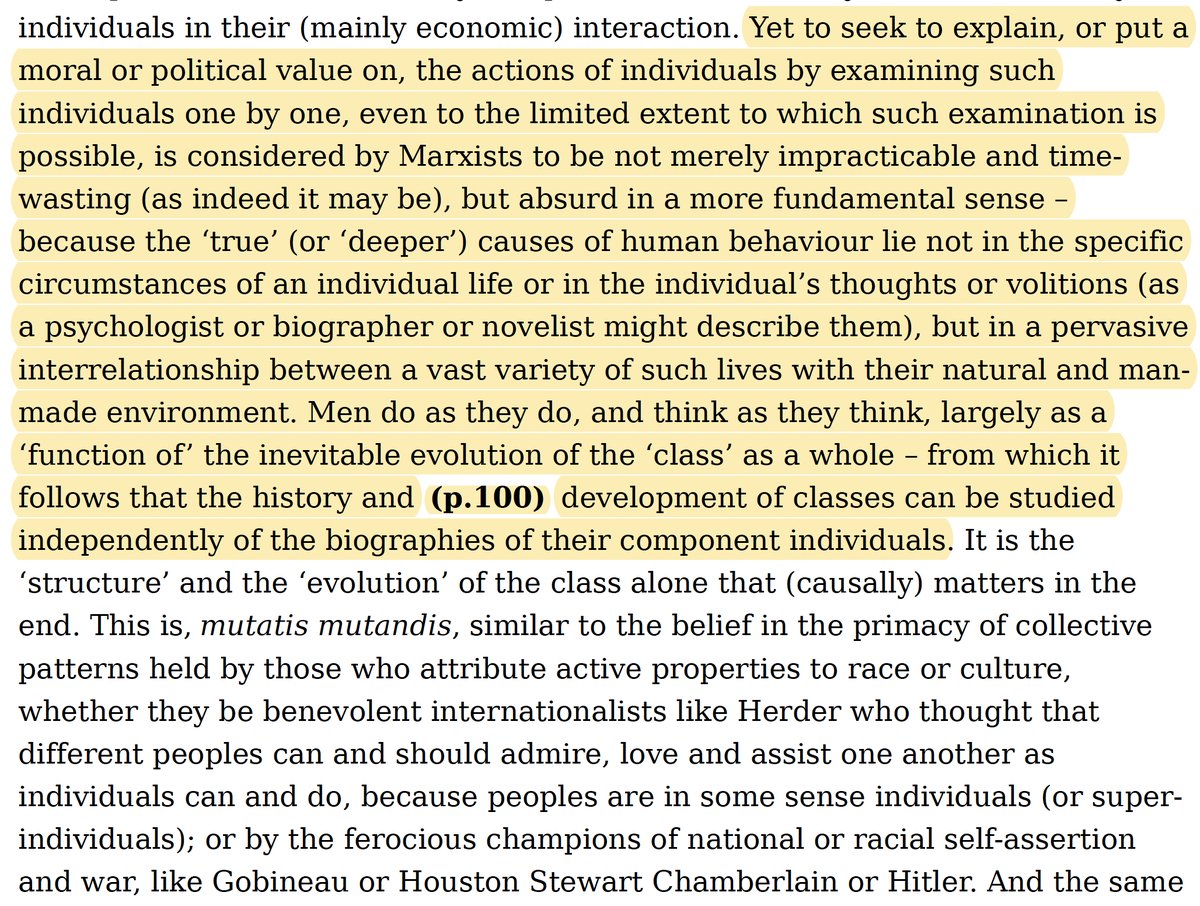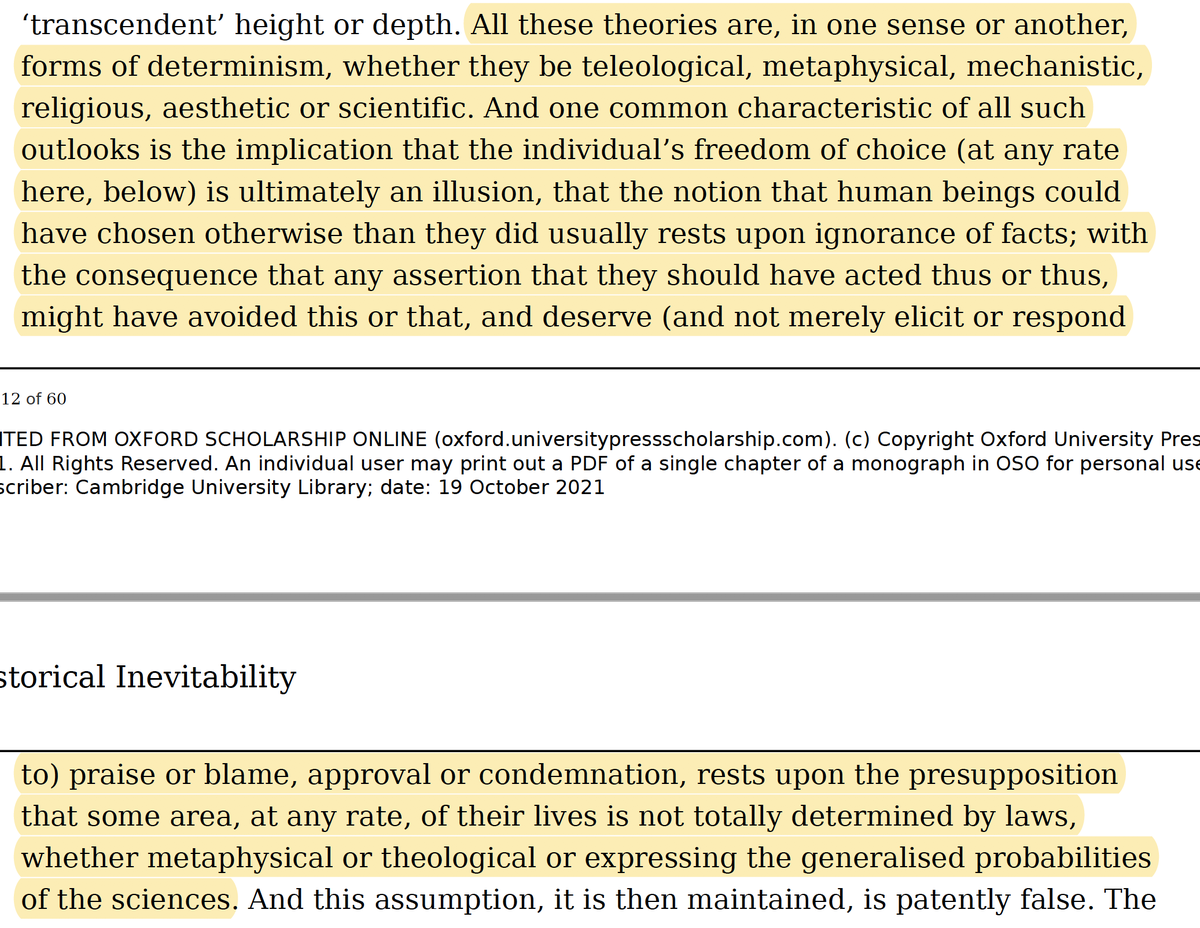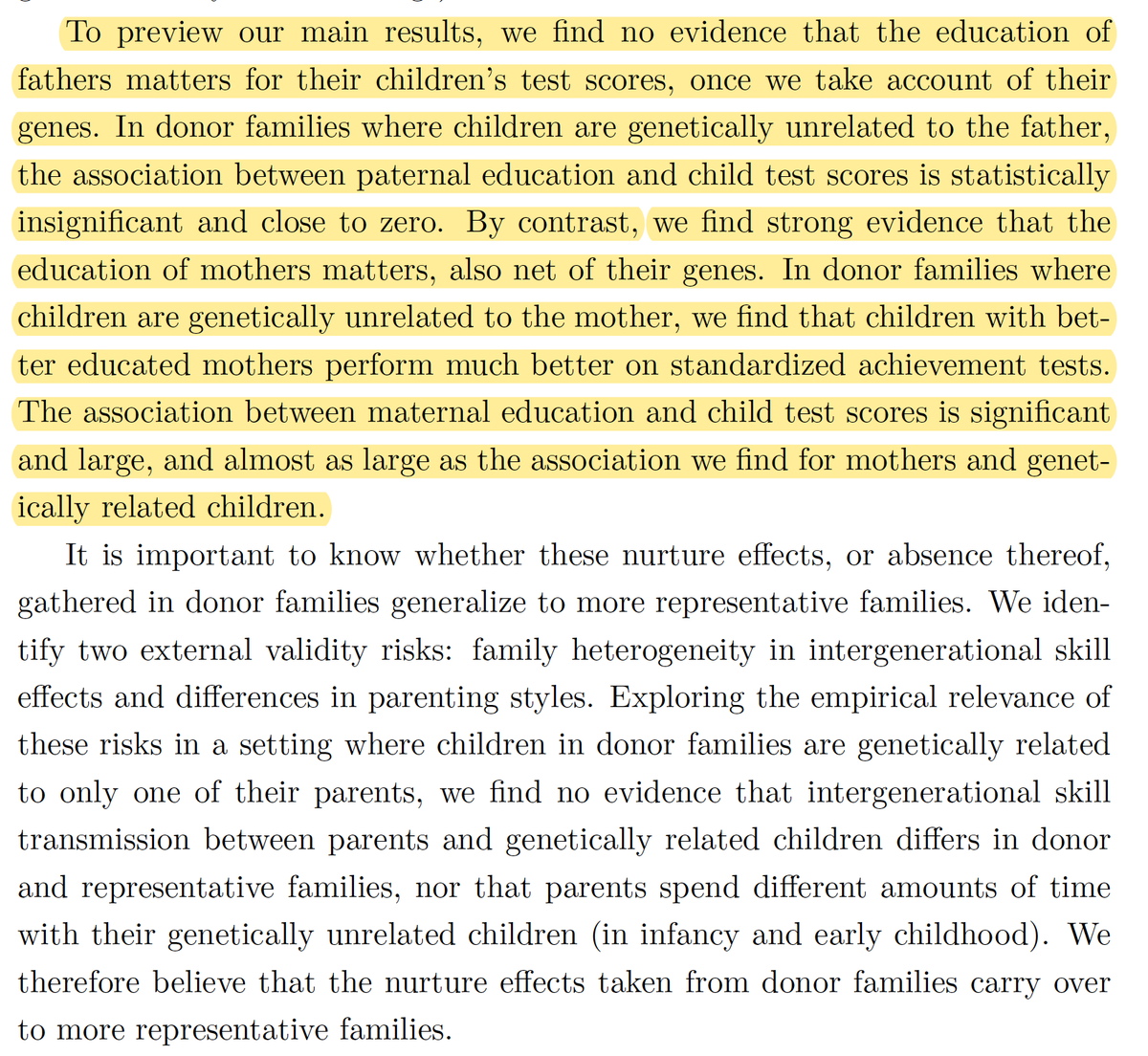
Isaiah Berlin contrasts 2 theories of history
Personal theories stress character, purpose, and motives of individuals; these theories are viewed as vain and ignorant
Impersonal theories emphasize custom, culture, economics, and inevitability; viewed as serious and insightful



Personal theories stress character, purpose, and motives of individuals; these theories are viewed as vain and ignorant
Impersonal theories emphasize custom, culture, economics, and inevitability; viewed as serious and insightful




He writes that the "teleological" view is that individual responsibility is illusion. All disorder, disaster, suffering is because we don't understand the underlying meaning of things. If we understood the "real reason" behind events, we'd no longer suffer oxford.universitypressscholarship.com/view/10.1093/0… 



Whether due to mystical forces, physical cause-and-effect, or cyclical patterns of history, it's the view that "everything happens for a reason" and "it couldn't be otherwise." These theories rest on the belief that freedom of choice is ultimately an illusion. 



So praise and blame have no place within this view— "we are what we are, like stones and trees, like bees and beavers." Just as it is irrational to expect justice or fairness from animals or soil, so it is with humans. 



So supposedly only "the acutest and most gifted" people discover these hidden truths of historical inevitability. The rest of us are blind to what truly shapes our lives. People like Hegel and Marx believed that at certain moments, "historical advances" are "due" to occur. 



The view of this form of determinism or historical inevitability is that it is rational to side with power—and irrational to be on the wrong side of history. 



The belief in historical inevitability means that everything must occur as it does (bc of mystical forces, physical cause-and-effect, or w/e). So it is silly to blame historical figures for what they do. Warlords, dictators, mass murderers, etc. "are like floods and earthquakes" 



Believers in historical inevitability think it's foolish to hold individuals in whatever historical period responsible, and that we should view events with detachment. But this reveals that they think people who act don't have free will, but interpreters of those actions do... 



"How silly of you to blame Napoleon for his actions. He had no choice. He was a product of his time, place, class, culture, and political system."
This kind of statement implicitly reveals the belief that actors have no free will, but people who interpret their acts do have it.
This kind of statement implicitly reveals the belief that actors have no free will, but people who interpret their acts do have it.
• • •
Missing some Tweet in this thread? You can try to
force a refresh









